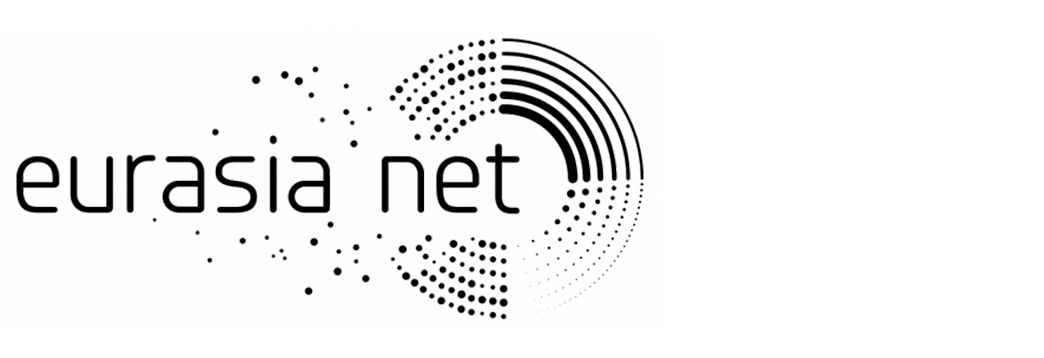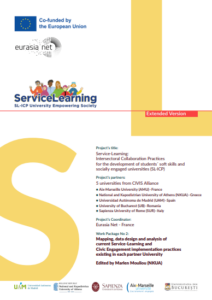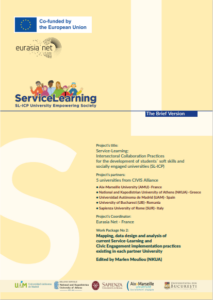General objectives
Analysis and Mapping of Current Service-Learning Practices: The first objective is to carry out an in-depth analysis of current Service-Learning practices within each partner university, with emphasis on the evaluation of associated soft skills. in Service-Learning. This will allow us to better understand the reality of Service-Learning in each institution.
Understanding of Institutional Pedagogical Cultures linked to Service-Learning: The second objective consists of studying the educational cultures specific to each university and carrying out a comparative analysis between the five European partner universities. This approach will help identify differences and similarities in the way Service-Learning is integrated and perceived within these institutions.
Specific objectives
Analyze the skills developed in terms of soft and hard skills among students thanks to Service-Learning projects: This analysis aims to understand the essential skills that students acquire thanks to Service-Learning, whether they are “soft” skills ” such as communication and collaboration, or “hard” skills specific to their field of study.
Promote awareness of Service-Learning practices within European universities : This objective consists of increasing awareness among European universities of the advantages and opportunities offered by Service-Learning, with the aim of strengthening its visibility and adoption within these institutions.
Encourage the adoption of Service-Learning practices to promote the civic engagement of students : This involves promoting the adoption of Service-Learning as an effective means of encouraging the civic engagement of students, by actively involving them in projects that have a positive impact on society.
Examine in depth the application of Service-Learning in partner universities and disciplines : The aim is to explore how Service-Learning is implemented in various university contexts, including at the level of specific faculties and disciplines, in order to to understand the varied approaches.
Evaluate whether the use of Service-Learning methodologies is consistent, systematic and institutionalized or whether it depends on the individual initiative of university faculty members aware of the benefits of Service-Learning based on their areas of research and research. ‘education.
Targeted results
- Creation of a global mapping of Service-Learning courses, projects and methodologies among the 5 partner European universities, taking into account various perspectives and stakeholders, including students participating in Service-Learning projects, non-participating students, teachers involved in Service-Learning projects and civil society organizations.
- Creation of databases that will allow students and teachers to engage directly in the field of Service-Learning and collaborate with various actors involved in these activities.
- Encouraging collaboration between students, teachers and local social or environmental support organizations, in order to promote mutual involvement.
- Promoting student autonomy in their actions and learning process, with an emphasis on the professional and academic benefits they can directly see.
Activities carried out
Creation and distribution of two questionnaires intended for students and university teachers to identify existing Service-Learning projects, collect quantitative and qualitative data on the experience gained from Service-Learning projects and find out about the tools and methods of existing service learning in partner universities.
Conducting interviews to collect personal feedback from teachers, students and civil society organizations who have participated in Service-Learning activities.
Carrying out case studies on Service-Learning projects completed or in progress by students and teachers
Production of a video capsule per university available on the project’s YouTube channel in order to record the testimony of students or teachers who have participated in Service-Learning projects
Creation of working groups interested in Service-Learning to bring together teachers, students, administrative staff and civil society organizations around the table in order to discuss innovative service-learning methods and feedback from experiences. .
Creation of tools and summary documents for a visual mapping of the data collected. Two deliverables have been produced thanks to the data collected (questionnaires, working groups, testimonials, …) which enabled us to list the different service-learning practices within the consortium. They are available below in a summarized version and an exhaustive one:


